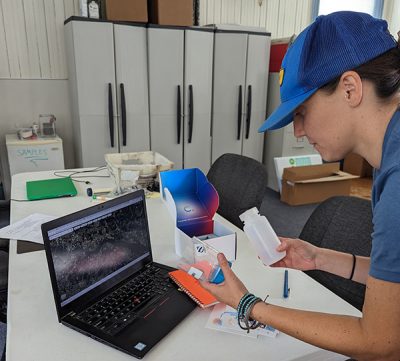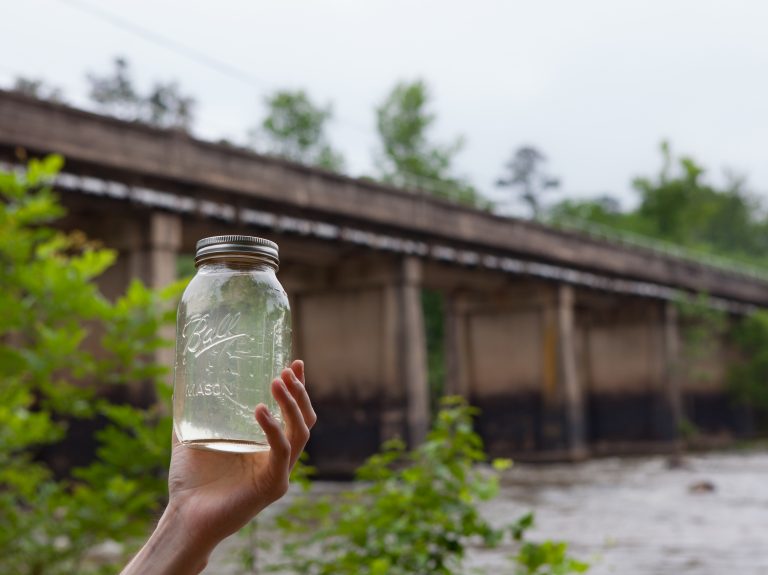
A nonprofit organization that works to protect the health of the Neuse and Tar-Pamlico River basins is joining in a nationwide monitoring project on per- and polyfluoroalkyl substances, or PFAS, in U.S. waterways.
Over the past two weeks, Sound Rivers’ riverkeepers have been sampling for PFAS in the waterways the organization works to protect.
Supporter Spotlight
Neuse Riverkeeper Samantha Krop and water quality intern Maia Schweikert took samples on the Neuse River near Clayton and Pamlico-Tar Riverkeeper Jill Howell is sampling the Tar River near Greenville, using Cyclopure test kits.
PFAS have been linked to harmful effects to public health and the environment. The compounds have been detected in surface water, air, soil, food, commercial materials and products, and in groundwater a significant source of drinking water, crop irrigation and agricultural production.
Cyclopure, a materials technology firm, and Waterkeepers Alliance, of which Sound Rivers is a member, have partnered on the project announced in early June. Cyclopure developed an adsorbent, known as DEXSORB, that can be used for multiple PFAS-related uses, such as environmental monitoring, household filtration products, and municipal and industrial treatment systems. Through a National Institute of Environmental Health Sciences, Cyclopure developed PFAS test kit using DEXSORB to detect PFAS compounds in tap water and surface water.
The waterkeeper groups are using Cyclopure kits to test for 55 PFAS structures, including 21 precursors and all compounds listed in EPA test methods, according to the alliance.
“We have more Cyclopure sample kits through a Waterkeepers Carolina project to conduct additional sampling in our watersheds during 2022 to assess potential PFAS sources and levels of PFAS in surface waters near drinking water intakes,” Howell said. “The current level of PFAS testing in the Neuse and Tar-Pamlico basins is extremely limited, so this data will be useful in starting to get a sense of if PFAS contamination is a problem here.”
Supporter Spotlight
Following the testing period, partners will analyze the samples and generate PFAS surface water data sets to be shared in a nationwide report.
Sound Rivers’ samples will be added to a national data set and a comprehensive report to be released ahead of the Clean Water Act’s 50th anniversary this fall, for use by Congress, EPA, water utilities, researchers and communities.
The report will include upstream and downstream test comparisons, geospatial mapping, as well as geographic and population analytical segmentation.







